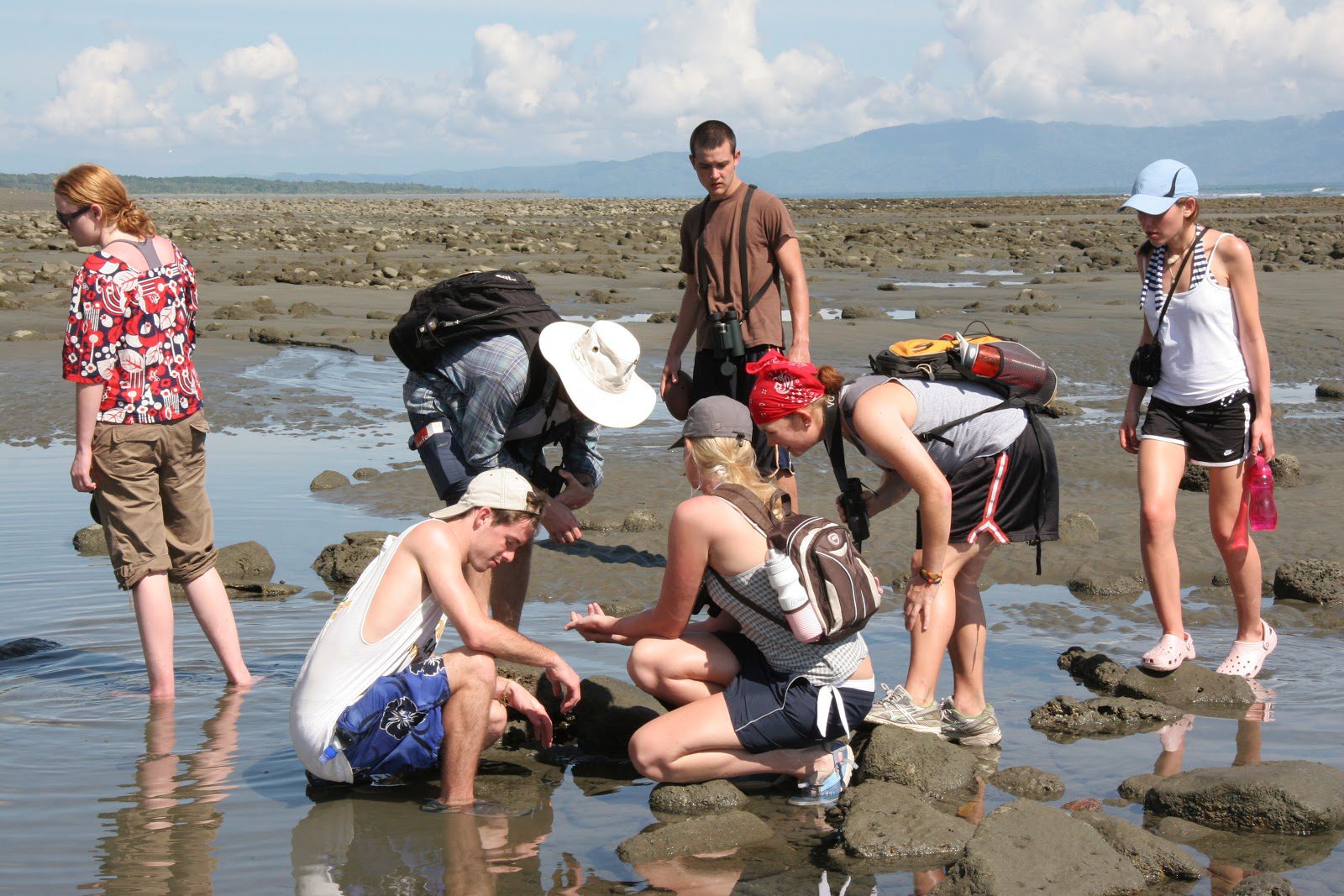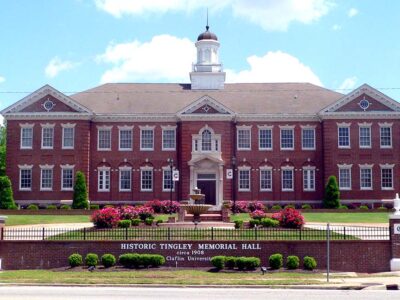“Ad Majorem Dei Gloriam,” translated as “For the greater glory of God,” is one of the six Jesuit values informing Xavier University’s vision statement. St. Francis Xavier, for whom the Cincinnati school was named, zealously lived his life aspiring towards this ideal as he undertook a life of global service, ever-buoyed by his commitment to God.
Xavier University’s practices are rooted in and informed by Catholic precepts, which, according to “The Xavier Way,” recognize the “sacred character of all Creation” as well as “our moral responsibility to care for Creation.” Given the breadth of sustainability-oriented initiatives undertaken across the Xavier campus, we witness more than an admirable intersection of faith and eco-friendly consciousness: at Xavier, Creation care is put into practice and woven through the very fabric that constitutes the institution.
At Xavier, emotional, physical and spiritual care is encouraged and supported for members of our campus community. As a Jesuit institution, it is critical that we take our spirit and our care into the community that surrounds us and share it with our neighbors locally, regionally and globally.
–Fr. Michael J. Graham, S.J., President. Xavier University
Sustainability Academic Programs
Xavier’s rigorous academic vision is rooted in the ideals of St. Ignatius Loyola, the founder of the Jesuits. In keeping with Ignatian tradition, Xavier is dedicated to the education of “the whole person intellectually, morally and spiritually through lives of solidarity and service, with sensitivity to issues of social and environmental justice.” Fittingly, Xavier’s academic offerings, conceived in the desire to adhere to rigorous standards of excellence and integrity, include a noteworthy array of programs designed to advocate for sustainability. The school offers opportunities for both students and faculty to engage from various angles on the critical issue of environmental degradation, currently affecting our planet’s well-being.
In addition to housing traditional majors in Biology/Applied Biology and Environmental Science, Xavier has created interdisciplinary opportunities for students to earn a BA in Economics, Sustainability and Society (ECOS), a BS in Land, Farming, and Community, and a BSBA in Sustainability Economics and Management (SUST). Those moving on to graduate studies can also pursue an MA in Urban Sustainability and Resilience.
Perhaps the most unique of the degrees devoted to creation care is Xavier’s MA in Solidarity and Sustainability in a Global Context. Housed in the Department of Theology, this graduate program seeks to heighten awareness of ongoing issues of economic and environmental sustainability as considered within the framework of spiritual traditions. This provides students with tools to peaceably encourage social transformation through communal environmental stewardship.
Campus Sustainability Groups, Events, and Publications
To carry out its institutional commitment to sustainability, Xavier faculty, staff, and students have joined forces in forming committees designed to ensure convictions translate into discernable change on campus and in outlying communities. With faculty and staff from a wide variety of programs on campus, the Xavier Sustainability Committee carries the mission of guiding the institution as a whole in achieving carbon neutrality—a promise pledged by Xavier’s president Michael J. Graham in 2008.
Early on in this promise to work towards promoting earth-friendly practices on campus, Xavier’s Center for Mission and Identity and the Office of Sustainability teamed up to host a three-part program. At the event, speakers introduced each area of focus—food, consumption, and energy—within a spiritual framework, proceeding to identify human practices that have led to consequences for the planet. Individual speakers and roundtable discussions were followed up by campus tours for attendees to highlight ongoing sustainability efforts on the Xavier campus.
In a similar vein, Xavier’s Brueggeman Center for Dialogue, along with Green Umbrella—a regional sustainability alliance—and the City of Cincinnati collaborate annually on Sustainability Day to host a conference with keynote speakers from across the country. Over the years, Sustainability Day talks have addressed topics such as environmental justice, the socio-economic dynamics of environmental policymaking, urbanism, the clean energy economy and water scarcity.
Working in conjunction with this group is Xavier Student Sustainability (XSS). Not only does XSS serve as the primary student component of the Xavier Sustainability Committee, but it also acts as a student-wide educating force on sustainability measures both on-and off-campus. In addition to organizing eco-friendly-themed events on campus—Sustainability Week, the Meatless Monday campaign, and composting drives and dining hall food recovery to name a few—XSS promotes active student and faculty participation in maintaining the NEXUS Community Garden. This urban farm welcomes all members of the Xavier community and local residents to work in tandem as they learn to grow food and cultivate eco-friendly living practices all the while solidifying bonds as an extended community.
XSS has also compiled the Xavier University Guide to a Green Cincinnati, a manual created by students for students to promote sustainable living on campus and in the greater Cincinnati area. Similarly, the Sustainability Committee has published the “Greening Your Office Guide” for faculty. Framed by the message “I only get angry when I see waste. When I see people throwing away things we could use” penned by Mother Teresa, this handy publication provides a detailed best practices reference for faculty and staff across campus in the collective endeavor to reduce waste.
Center for Faith in Justice
Home of XSS, the Dorothy Day Center for Faith and Justice provides a wealth of opportunities for students wishing to make a tangible difference in a “diverse world where faith matters and justice is imperative.” Rooted in Jesuit principles, the center encourages students to find God in all things, embracing pluralism, solidarity, and the common good.
Open to all students of all faiths, the center’s staff—which includes a Protestant, a Jewish, and a Muslim chaplain—supports students as they grow in their spiritual lives, beckoning them to respond to current social issues by becoming agents of positive social change.
Among Dorothy Day’s many areas of outreach, sustainability occupies a significant area of focus at the center. Headed by Rabbi Jennifer Lewis, students committed to environmental conservation and justice are provided with opportunities to enact tangible earth-friendly changes across campus as well as to strengthen their bonds with the greater Cincinnati community. The Center also provides a communal blog space for sharing thoughtful reflections on relevant topics. For example, in a post entitled “Insecurity about Food Insecurity,” Greg Mellor, former Assistant Director of Faith and Ministry at the Center, examines the question of food insecurity from a Lenten perspective, accepting the challenge to allow his discomfort on the topic to propel him to action. In another post, Xavier graduate (then a senior) Liz Tate discusses humans’ depletion of the Earth’s resources for their own convenience, suggesting that the Lenten period be fruitfully used as a time to re-think and re-calibrate the one-way relationship between society and the Earth to ensure its existence for future generations.
Sustainability Heroes Gallery
The Xavier Sustainability Heroes Gallery shines a spotlight on local and regional figures who have made commendable contributions to promoting earth-friendly practices in the Cincinnati area. The gallery’s mission statement notes the men and women it showcases “embody Jesuit ideals,” having “dedicated their lives to bettering their environment and communities, two fundamental sustainability values.” Gallery hero Merelyn Bates-Mims, former acting Director of Diversity at Xavier emphasizes leadership begins with people’s stories, hence the focus on the personal narratives of remarkable citizens whose ongoing efforts to repair damaged local ecosystems and foster intersectionality among disparate communities serve as models for all at Xavier.
Gallery heroes range from the university’s first ecology professor—now retired—Stan Hedeen, who devoted his career to resurrecting the Mill Creek waterway, to Cincinnati’s Superintendent with the Cincinnati Parks Department Gérald Checco, who views his civic duty as a guest on this planet as “keeping the ‘house of the host’ clean and green” by developing alternative energy sources, to Jim and Eileen Schenk, social workers who have demonstrated their commitment to sustainable living in founding the Enright Ridge Urban Ecovillage.
Xavier University itself shines as a sustainability superhero, an example for us all to emulate.





 Copyright
2024
Root and Vine
Copyright
2024
Root and Vine